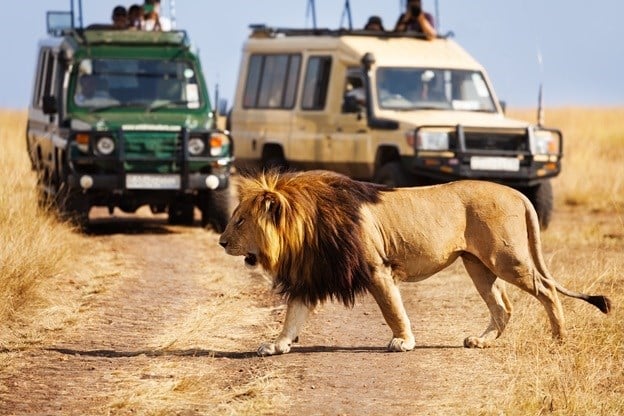Promotion of Kenya's tourism key to its growth
In a hospitality report by Jumia Travel, Kenya earned $1.2bn from tourism expenditures last year, up from approximately $989m in 2016; a 20% increase. This, as international arrivals to Kenya reached 1.4 million as compared to 1.3 million in the previous year, representing an increase of 9.8%.

Some of the economic drivers that highly contributed to the stability included enhanced security in the country, infrastructural developments like The Standard Gauge Railway, a steady macroeconomic environment, improved budgetary allocations by the government, and increased air connectivity within Africa. Serena Hotels’ regional sales and marketing director Rosemary Mugambi, applauds the government’s strides in enhancing the industry in the areas mentioned below.
More diverse tourism products
Kenya’s core tourism resources are beach and safari products. It can be noted from the National Tourism Blueprint, that the government has identified existing gaps and is now set to do much more in identifying new opportunities that should allow the opening of a wider scale of diverse tourism products, addressing needs within existing products and developing new ones. It should be expected that in addition to market research to identify best practices and products, there will be closer partnerships with the private sector and other stakeholders to ensure long-term sustainability and alignment of tourism products with market needs.
Tourism marketing
Recently, countries like Rwanda, and traditionally South Africa have noticeably upped their tourism marketing strategies to maintain and increase market share in the international tourism market. Whilst Kenya’s reputation as a top African tourist destination has always managed to place the country as a leader in the industry, it is imperative that marketing campaigns for destination Kenya be more innovative to capture the imagination of travellers across different segments; from the niche market to the more budget conscious. Adequate marketing funds also need to be availed consistently.
Promotion of domestic tourism
Domestic tourism has taken off exponentially in the last few years, generating 62% of direct travel and tourism GDP in 2017, as foreign spending contributed 38% according to the hospitality report. Concerted efforts by both government and the private sector to increase the local tourism numbers at times when international tourist figures went down have paid off handsomely; and all players stand to be lauded for the hard work.
The unified brand of #TembeaKenya through the Kenya Tourism Board has certainly helped build awareness especially within the counties - a good initiative that must continue to receive the necessary support. Much remains to be done to educate Kenyans on their country as a travel destination, and in continually positioning Nairobi as a regional hub. The resultant benefit is Kenya being a 'must go to' destination for both corporate and leisure travel from the region and beyond within the continent.
Protection of tourism resources
The conservation of valuable resources like wildlife is paramount. It is commendable that the elephant population in areas like the Tsavo National Park has increased significantly following efforts to contain poaching and management of human-wildlife conflict by the Kenya Wildlife Service. A park which previously had become almost forgotten is now slowly coming back to life as a viable tourism area. This is just one example of success stories that are not told enough for rightful gain.
However, the unfortunate death of 11 rhinos (the eleventh was found dead on the morning of Monday, 6 August 2018) during a translocation from Nairobi and Nakuru national parks to Tsavo East; is an example of occurrences that hurt the sector and which should not happen in future.
Ultimately, the government must play the role of ensuring that the right policies and regulations are in place and adhered to, providing an enabling environment. The industry must also play by the right rules and procedures in developing the industry to ensure Kenya maintains and grows its slice of the cake in the market. It is all about partnerships.

About Josephine Wawira
Josephine Wawira is a consultant in communication and public relations with over six years of progressive writing and broadcast experience. She is currently a writer for Africa's online hotel booking portal, Jumia Travel, focusing in the areas of travel, tourism, and hospitality as it relates to Africa.Related
South Africa to showcase tourism at ITB Berlin 2025 28 Feb 2025 Radisson Collection makes its South African debut 12 Dec 2024 From longer stays to local foods: Here’s what’s defining travel in 2025 28 Oct 2024 Virgin Atlantic returns to CPT with extended seasonal service 28 Oct 2024 Tourism Marketing Conference to highlight new trends and strategies 2 Aug 2024 Unlocking growth: How SA's brand strength fuels tourism arrivals 25 Jul 2024
























